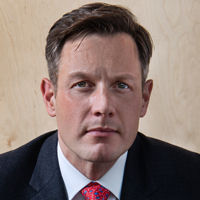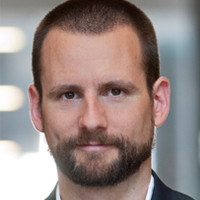
Over the coming months, Canadians will watch as several thousand positions in the upper echelons of the American executive branch are filled by presidential appointees. This is a complex and time-consuming process, with nominees having to be confirmed by the United States Senate. These appointments, moreover, may take even more time than usual because if the Republicans retain control of the Senate after the Georgia runoffs Jan. 5, they may choose to obstruct the transition of the newly elected Democratic president in light of President Donald Trump’s refusal to concede.
Canadians can be forgiven for thinking that this is an odd way to run a government. After all, aside from cabinet ministers and their political staff, virtually every public service position in Canada is held by non-partisan career bureaucrats. Although prime ministers do occasionally bring in outsiders to serve as deputy ministers, the vast majority of these positions are held by public servants who come up through the ranks. Similarly, while there are a large number of governor-in-council appointments to boards, tribunals and other executive bodies made at the discretion of the government, these are filled as vacancies arise rather than all being replaced with each new elected government. Compared to the United States, the upper echelons of the Canadian bureaucracy are characterized by continuity.
Despite the advantages associated with this stability and the benefits of a largely non-partisan public service, the strengths of the American approach should be recognized. Senior American officials do not spend entire careers in government. They can move from the private and non-profit sector to the public sector. This ensures that different experiences and perspectives are brought into government. What the American government lacks in continuity, it makes up in dynamism, and a broader and deeper pool of skills and experiences. American universities and think tanks, for their part, employ scholars and researchers who have experience in the senior levels of government, enhancing their credibility and impact within the policy community.
Most interestingly from our perspective, though, is the American practice of having academics serve in government for a part of their career. We are two university professors who have worked in the federal government, both in the area of national defence. This experience has given us insight into the realities of policy-making and how government operates, which enriches our research and teaching. Indeed, because we both teach in policy schools in the national capital, this mix of academic and government experience is one we share with several of our colleagues, and one our students expect from their professors. Yet the opportunity we have had to work in both government and academia is far from being as common as one might hope. A sizable gap exists between the policy and scholarly worlds in Canada, and while a few of us jump between the two sides, much more could be done to bridge the divide.
Academics, for instance, can challenge established positions and policies that those in government cannot. They can also bring the latest theoretical perspectives to bear on policy questions.
In a recent article published in Canadian Public Administration, we considered the benefits of encouraging closer contact and cross-pollination between policy-makers and academics in the field of national defence. Drawing on our own experiences working in both worlds, combined with a series of interviews with defence practitioners and scholars, we observed that both government and academia stand to gain by bridging the gap that exists between them. Academics, for instance, can challenge established positions and policies that those in government cannot. They can also bring the latest theoretical perspectives to bear on policy questions. Scholars, in turn, gain valuable lessons about the operations of government and how to make their research and teaching more policy-relevant if they have the opportunity to work in the public sector. Senior decision-makers who work alongside academics, furthermore, can get a better understanding of how scholars interpret, as well as critique policies and government action. Hence, although it is vital to keep the worlds of government and academia distinct and independent to ensure the autonomy of university research and scholarship, both stand to gain when there is more ease of travel between them.
We have examined the failures and success of the academic outreach programs that the Department of National Defence has maintained over the decades. The most recent of these, Mobilizing Insights in Defence and Security (MINDS), funds collaborative research networks and provides targeted engagement grants for research into specific topics. It also runs expert briefing series and “rapid response mechanisms” to bring policy-relevant research to decision-makers in a timely fashion. These are all laudable initiatives and have proven their worth. But there is one effort that merits further attention: additional secondments for academics inside government (and for public servants in academia). While interchange programs exist within the government of Canada, including them within targeted programs such as MINDS could draw a greater number of candidates from specific policy-focused fields.
Funding a greater number of secondments would not necessarily provide Canadian academics with a degree of government experience that matches that of their American counterparts who are appointed to the upper echelons of the executive branch, but it would increase the opportunities available to scholars who want to gain policy experience. The federal government, in turn, could better leverage different perspectives and ideas offered by those from outside the professional public service. Though this would be nothing like the turnover that we are about to see in the United States, it would bring a degree of novelty to Canada’s much-cherished system of public service continuity.
Photo: The Parliament Buildings in Ottawa. Shutterstock.com, by Henryk Sadura









